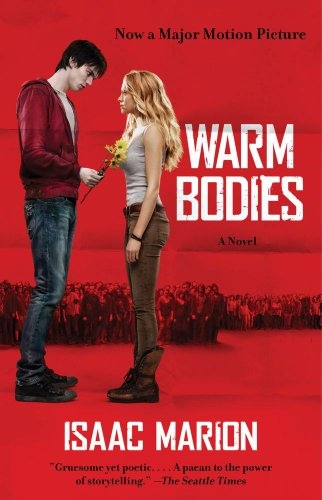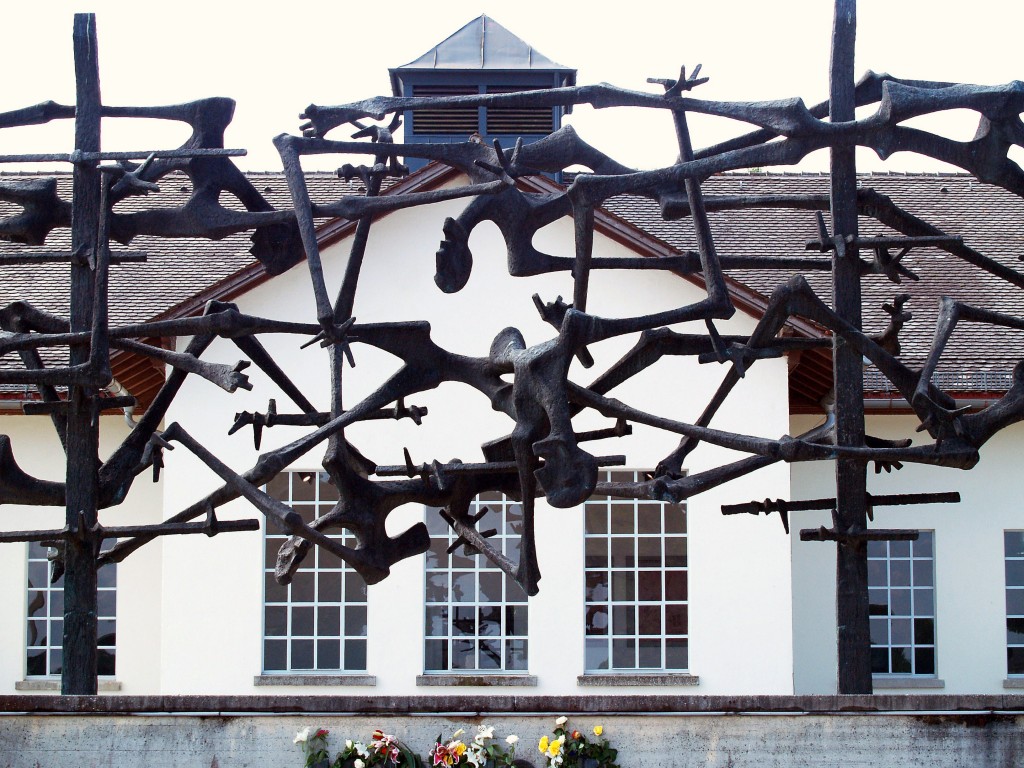
You know you’re an English teacher, if, when a movie is released, you buy the book.
The cover of my version of Warm Bodies by Isaac Marion is the movie’s poster, but it is better than a silly romance which cover seems to suggest.
The book’s first-person narrator is R — it’s all he remembers of his own name because he’s a zombie. The undead always have identity issues.
R describes his life as a zombie:
We do what we do, time passes, and no one asks questions . . . . We grunt and groan, we shrug and nod, and sometimes a few words slip out. It’s not that different from before” (4).
“It’s not that different from before.”
This is one of the main themes of the novel, suggesting that, in many ways, people are like zombies long before they become the decomposing brain-eaters.
R finds himself the protector of Julia–she’s alive and pretty amazing. She’s unlike any of the Living or the Dead. Where R’s cognitive abilities are severely compromised, what with being dead and all, Julia is clever in a philosophical sense. She explains that the source of the “plague” was not anything like a virus or nuclear contamination, but was from “a deeper place.” She actually uses the word “sin.”
Its source is not any direct divine judgment per se, but because we’ve “crushed ourselves down over the centuries” (221).
I think we crushed ourselves down over the centuries. Buried ourselves under greed and hate and whatever other sins we could find until our souls finally hit the rock bottom of the universe. And then they scraped a hole through it, into some … darker place.
In the last few centuries, we have crushed ourselves, indeed all of reality, down into the very small container of matter only–material reality is reality. We have rejected all transcendence: anything beyond the physical. We have come to believe the world is ruled by immutable and impersonal laws, that humanity is just a bunch of genes trying to get ahead and that time is a mindless and purposeless march toward personal and cosmic oblivion. This view of the world could be called “Philosophical Materialism.” It holds that matter is the only reality and that everything, including thought, feeling, consciousness, and will, can be explained in terms of matter. The world described by philosophical materialism is closed to the transcendent.
This idea has crushed us. We’ve largely lost our sense of mystery and little evokes wonder. More and more of us believe that everything from mountains to sunsets, from music to love, is a product of physical or chemical processes. We no longer value things for their own sake, but for how economically useful they are–trees have become lumber and pigs have become pork. It is just a matter of time when people will be valued only for their utility. Or has this happened already?
We are Zombies
The book asks, if this is our conception of reality, what then is the difference between being a zombie or one of the Living? Julie doesn’t see a lot of difference anymore. While looking at a daisy Julie says, “We don’t even have flowers anymore. Just crops” (70).
We don’t even have flowers anymore. Just crops.
Julie believes that human beings are no better than zombies if they lose their sense of wonder — when they cease to see the world and its inhabitants as beautiful in and of themselves. Her father, only concerned with practical survival is no longer any better than the Dead he hates. She says of him, “Dad’s dead. He just hasn’t started rotting yet” (202). Julie believes life is more than physical and that simple survival isn’t enough. She says, “I mean obviously, staying alive is pretty . . . important . . . but there’s got to be something beyond that, right?” (71).
“I mean obviously, staying alive is pretty . . . important . . . but there’s got to be something beyond that, right?”
Julie is a foil to her father’s limited participation in life, but her vitality also provides a more important contrast to the Dead, represented by R.
Julia is less than impressed with R’s stagnant music collection. He communicates that he isn’t really looking for anything different–that’s the way the Dead are. She doesn’t accept this as a valid excuse claiming, “Music is life! It’s physical emotion–you can touch it! It’s neon ecto-energy sucked out of spirits and switched into sound waves for your ears to swallow. Are you telling me, what, that it’s boring? You don’t have time for it?” (54).
The Cure for Zombies
Julie’s love of music, like that for flowers, is rooted in their transcendence–they possess qualities beyond their physical properties. She is unique in that, unlike her father or the zombie R, she believes that there is more to reality than the physical.
This, it turns out, is salvation for R.
Romantic love is a part of his salvation, but it’s much bigger than love. It includes flowers and music and everything else that human beings experience. All the things that are good or true or beautiful, supernatural, spiritual or transcendent things.
Love is the main marker of R’s encounter with a transcendent reality. Before he meets Julie, R describes the zombie perspective of others, whether Living or Dead; we are all meat–“Nameless, faceless, disposable” (74). After he falls for Julie, she becomes much more to him than meat, more than a mere physical body. Consider this passage from near the ends of the story:
“I look into Julie’s face. Not just at it, but into it. Every pore, every freckle, every gossamer hair. And then the layers beneath them. The flesh and bones, the blood and brain, all the way down to the unknowable energy that swirls at her core, the life force, the soul, the fiery will that makes her more than meat, coursing through every cell and binding them together in millions to form her. Her body contains the history of the universe, remembered in pain, in joy and sadness, hate and hope and bad habits, every thought of God, past-present-future, remembered, felt, and hoped for all at once” (222).
In Julie’s face, he sees the transcendent and it is inseparable from the physical.
This has always been true of everything, he just forgot–this is the essence of the zombie.
Somewhere in the last few centuries, we have separated the soul from the body and then ditched the soul because we couldn’t weigh it. We lost the enchantment in life. The novel’s thesis is that if you live long enough in a disenchanted world, you will eventually become little more than a zombie. It offers a solution too; this story suggests that the first step toward the cure of the zombie curse is the re-enchantment of the world.
[click_to_tweet tweet=”In the book, Warm Bodies, the zombie, R is representative of all materialists, living and undead. He finds salvation, not a result of romantic love, but in encounters with embodied transcendence in music, flowers, and Julia. #zombies #WarmBodies #IssacMarion” quote=”In the book Warm Bodies, the zombie, R is representative of all materialists, living and undead. He finds salvation, not a result of romantic love, but in encounters with embodied transcendence in music, flowers, and Julia.”]
The movie made one significant change to the story.
Next Zombie Post: Warm Bodies (The Movie)
Want more zombie articles? Start with this one: A New Kind of Monster




